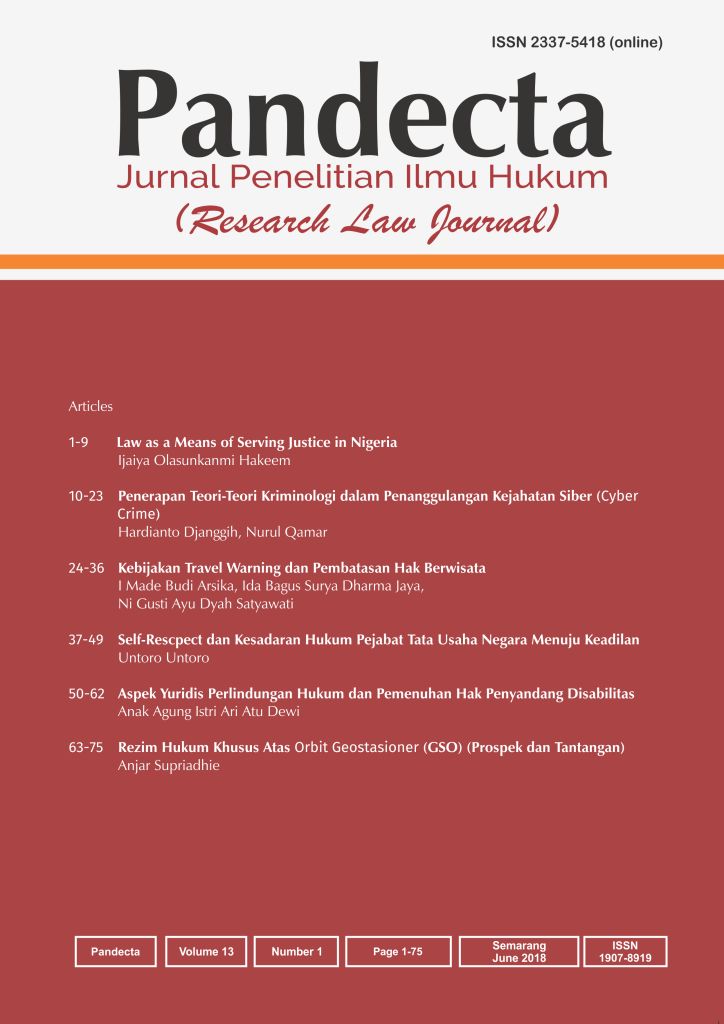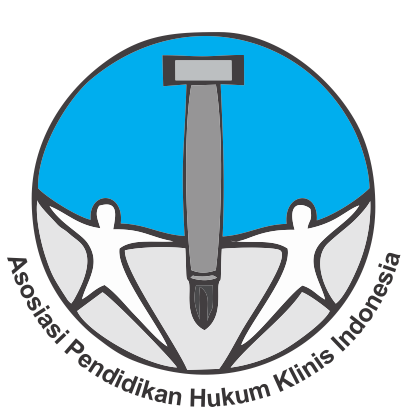Development of Integrity Zone Towards Corruption-Free (WBK)/Clean Bureaucracy (WBBM) at Work Unit Law Faculty UNNES
(1) Faculty of Law, Universitas Negeri Semarang
(2) Faculty of Law, Universitas Negeri Semarang
(3) Faculty of Law, Universitas Negeri Semarang
(4) Faculty of Law, Universitas Negeri Semarang
(5) Faculty of Law, Universitas Negeri Semarang
Abstract
Keywords
Full Text:
PDFReferences
Books
Soekanto, Soerjono. Pengantar Penelitian Hukum. Jakarta: UI Pers, 1986.
Nasution, Bahder Johan. Metodologi Penelitian Ilmu Hukum. Cetakan Ke. Bandung: Mandar Maju, 2016.
Article Journals
Barriola, Illan, Bruno Deffains, and Olivier Musy. “Law and Inequality: A Comparative Approach to the Distributive Implications of Legal Systems.” International Review of Law and Economics 75, no. August 2022 (2023): 7. https://doi.org/10.1016/j.irle.2023.106139.
Budianto, Agus. “Legal Research Methodology Reposition in Research on Social Science.” International Journal of Criminology and Sociology 20, no. 9 (2020): 2.
Komalasari, Komalasari, Yasir Arafat, and Mulyadi Mulyadi. “Principal’s Management Competencies in Improving the Quality of Education.” Journal of Social Work and Science Education 1, no. 2 (2020): 181–193.
Maulana, Aris, Fibria Indriati, and Kemal Hidayah. “Analysis of Bureaucratic Reform Through Delayering of Government Institutions in Indonesia.” Jurnal Borneo Administrator 18, no. 2 (2022): 165.
Pratama, Prasetya Eka, Muhammad Kamil, and Salahudin Salahudin. “Implementation of the Integrity Zone Development Program towards a Corruption-Free Area and a Serving Clean Bureaucracy Region.” Journal of Local Government Issues 2, no. 2 (2019): 134.
Prihendarto, Novan, and Suwignyo Widagdo. “The Influence of the Integrity Zone (ZI) and Corruption-Free Area (WBK) on Performance of Jember State Property Service and Auction Office.” International Journal of Innovative Science and Research Technology 6, no. 7 (2021). www.ijisrt.com593.
Triatmanto, Boge, and Suryaning Bawono. “The Interplay of Corruption, Human Capital, and Unemployment in Indonesia Implications for Economic Development.” Journal of Economic Criminology 2, no. September (2023): 2. https://doi.org/10.1016/j.jeconc.2023.100031.
Turner, Mark, Eko Prasojo, and Rudiarto Sumarwono. “The Challenge of Reforming Big Bureaucracy in Indonesia.” Policy Studies 43, no. 2 (2022): 333–351. https://doi.org/10.1080/01442872.2019.1708301.
Widarti, Tri, and Maria Madalina. “Penerapan Zona Integritas Menuju Wilayah Bebas Korupsi Dan Wilayah Birokrasi Bersih Dan Melayani Di Pemerintah Kota Yogyakarta.” Res Publica 2, no. 1 (Jan-April 2018) (2018).
Zafar, Sameen, Imran Ur Rahman, and Suman Ammara. “Disasters and Corruption: An Empirical Analysis of 16 Countries from Asia and the Middle East.” International Journal of Disaster Risk Reduction 90, no. April (2023): 5. https://doi.org/10.1016/j.ijdrr.2023.103678.
Refbacks
- There are currently no refbacks.


